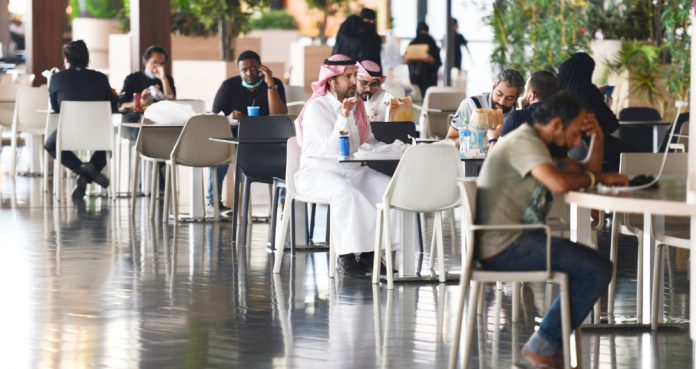RIYADH: Saudi Arabian residents used consumer loans and credit to spend more on travel and education, but less on healthcare, transport and home improvements, according to the latest data from the Saudi Central Bank (SAMA).
Statistics released at the end of January show a 26 percent rise in loans for travel and tourism, despite restrictions due to the coronavirus (COVID-19) pandemic.
Talat Zaki Hafiz, an economist and Saudi Financial Association board member, told Arab News that increased spending on domestic tourism contributed to the upward trend.
Mazen Al-Sudairi, head of research at Riyadh-based financial services company Al Rajhi Capital, agreed, saying that the 2020 surge was due to a refocus on domestic travel.
“Higher spending on travel was mainly due to domestic tourism, which was strong, especially during last quarter of 2020. When people travel internationally, most likely they will use a multi-currency card (prepaid card) or cash to convert into international currency, and that’s the reason international tourism might not have a direct correlation with credit card spending,” he said.
Loans used for spending on education were also up 29 percent year-on-year, which Hafiz said was also due to the pandemic.
“Spending on education has shown an increase in 2020 due to the consumer focus on buying educational-related materials and hardware equipment, such as laptops, to fulfil distance learning needs and online class requirements due to COVID-19,” he said.
Surprisingly, loans and credit spending related to healthcare were down 2 percent, despite the pandemic.
Hafiz said the slight reduction in spending was “because individuals were busy focusing on COVID-19 and complying with health precaution measures, and also maybe some were deferring unnecessary medical treatment until the pandemic is brought under control.”
Al-Sudairi said the low spend on healthcare was also due to the cost being borne mainly by the government, not the individual.
Spending on home improvements and transport was also down 7 percent year-on-year following restrictions on movement during lockdown and a lack of opportunities to spend, experts believed.
The number of consumer and credit card loans was up 9 percent overall.
Al-Sudairi said the increase in value added tax (VAT) from 5 percent to 15 percent may have also had an impact, forcing consumers to use credit facilities to cover expenses.
“The trebling of VAT, which reduced consumer purchasing power, could have also induced people to take more consumer and product-related loans or spend through their credit cards. We have seen this trend in some of the consumer finance companies we cover,” he said.

Saudi Arabia limits social gatherings, suspends indoor entertainment and dine-in services to combat virusSaudi residents urged to use COVID-19 app to access public places as cases rise

